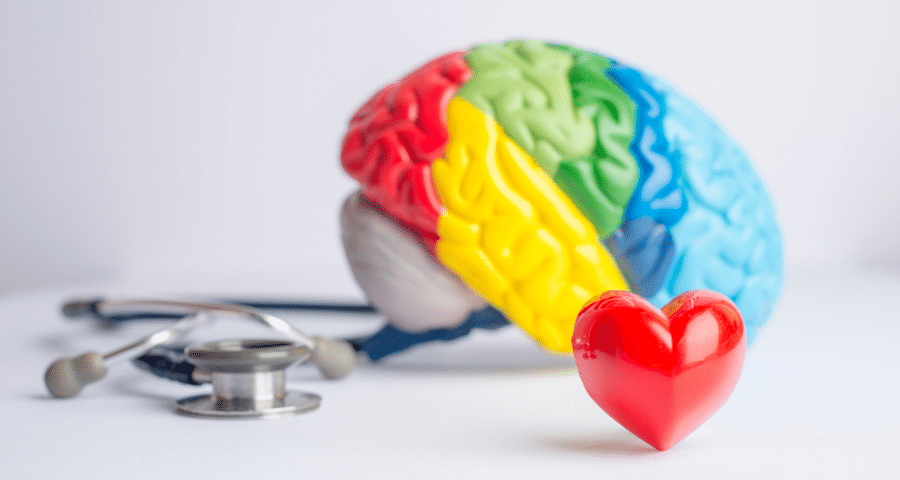As an essential service during the COVID-19 coronavirus pandemic, veterinarians across Australia have been busy working often in a heightened state of stress for an extended period of time, highlighting the risk of exhaustion and burnout in the veterinary profession.
With the veterinary profession suffering a four times higher rate of suicide than the general population, it is also likely that far greater numbers of veterinarians suffer from burnout with the physical and psychological fatigue brought about by chronic stress and anxiety.
Coupled with the normal veterinary job stressors such as long hours, low professional pay rates, financial constraints of clients and the impact of an increasingly demanding pet-owning public, as the pandemic continues, it’s an important time to focus on veterinary mental health and wellbeing.
It is well known that chronic unrelieved stress can lead to major health problems and detrimentally impact personal relationships. For those experiencing chronic unrelieved stress, there is an increased risk of burnout, resulting in exhaustion and cynicism. These impacts on veterinary wellbeing can also contribute to reduced workplace productivity and an increase in staff turnover.
Veterinarian Dr Brian McErlean conquered his own experience with burnout several years ago by finding renewal in doing other work outside of general veterinary practice. He has since focused his attention on advocating the issue of veterinary mental health and wellbeing, and is keen to empower vets to increase their understanding of these issues.
“I cut my hours by a third at age 50 and retired at 56. Sometimes changing tack brings all the enthusiasm back and removes the cynicism. My simple mantra for good mental health is exercise, connection and a good diet. It is not rocket science. What happens when vets get really busy is that they have no time or inclination for exercise, relationships get stranded and diet can sometimes go out the window in favour of processed or fast food.”
“Burnout really is caused by different things in different people depending on their resilience and coping methods, learned or ingrained. That is why the approach to dealing with it has to be tailored. The important thing is to understand your stressors and deal with them. If you don’t address the underlying cause of burnout and just treat the symptoms with exercise, meditation or distractive hobbies, you may not get a result. I have always been a believer in identifying the stressors and deal with them first”, said Dr McErlean.
“The important thing is to understand your stressors and deal with them.”
The signs of burnout vary, and can include fatigue, insomnia, depression, anxiety, memory loss, hypervigilance, work errors, substance abuse, and a broad range of medical problems which are initiated or exacerbated by stress.
Strategies for dealing with burnout can include reducing your workload, learning stress management techniques, prioritising all aspects of self-care – including sleep, diet and downtime, finding a sense of fun and joy again, and seeking appropriate medical support.
It can also be challenging to distinguish a healthy work ethic from potentially unhealthy professional functioning. Mentoring and seeking support from colleagues is extremely valuable. A process of self-assessment is also vital to understanding the effectiveness of any strategies implemented. There are several readily available tools which can assist with this self-assessment process, one of which, PROQOL or the Professional Quality of Life Scale is freely available online.
“PROQOL guides you through a series of questions and provides an assessment of compassion satisfaction – the pleasure you derive from being able to do your work well, and compassion fatigue – which includes burnout and secondary traumatic stress. There are also further helpful resources on their website including tips for caring for yourself in the face of difficult work”, said Dr McErlean.
There are also a range of mindfulness-based stress reduction activities, summarised by Associate Professor Lydia Gerber from Washington State University in an article for Clinician’s Brief which can aid in reducing stress. These include breathing exercises and being mindful when undertaking routine activities, such as when washing your hands, “using this time to fully connect to physical sensations can become a means of connecting to our moment-to-moment experience”. Mindful walking can be particularly beneficial to clear your head during a busy day, along with mindful eating, which involves remembering to notice textures, tastes and sensations as we eat.
A recent article written by Drs Pamela Hartzband MD and Jerome Groopman MD in the New England Journal of Medicine, which takes into account the onset of the COVID-19 pandemic, provides a salient perspective into burnout in human physicians. A key message is that whilst many of the strategies to address burnout target the individual doctor, there is also the need for change in how the human healthcare system works.
“My simple mantra for good mental health is exercise, connection and a good diet.”
“Giving doctors flexibility in their schedule to allow for individual styles of practice and patient interaction was one of the few system solutions that reduced burnout. Flexibility in scheduling recognises that both patients and doctors are individuals, and some interactions simply take longer than others. It is time to evaluate what has worked and what hasn’t in health care reform. We must not return to the former status quo”.
This highlights that, during this time of great global change and upheaval, there could also be opportunities to consider structural changes in how the veterinary profession delivers care, with resulting benefits for veterinary mental health and wellbeing in Australia.
A range of resources for staying healthy and maintaining a good work-life balance in the veterinary profession can be found on the Australian Veterinary Association (AVA) VetHealth website.
For support, call Lifeline on 13 11 14, Beyond Blue on 1300 22 4636, or the AVA’s 24-hour counselling service on 1300 687 327.

